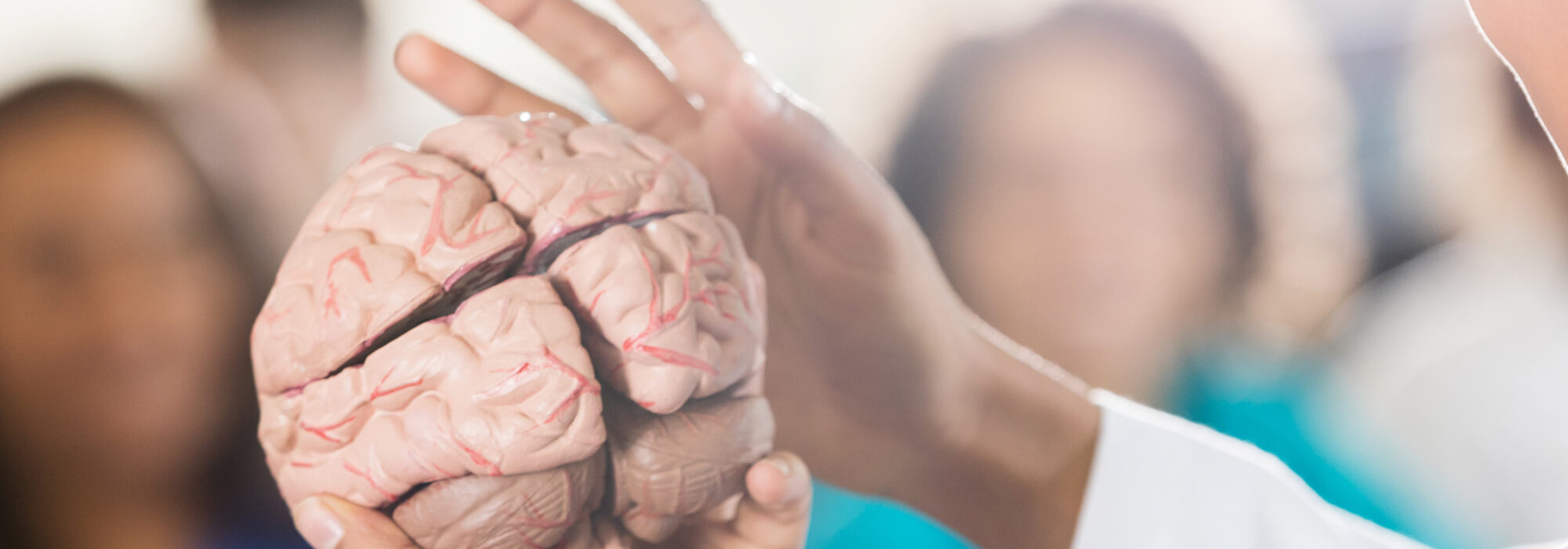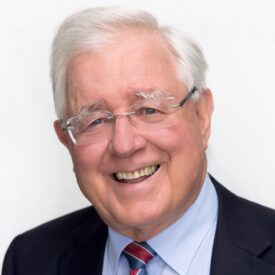
Unlocking the wonders of the brain with Sir Richard Faull
Our brain is inextricably linked to every part of our body and hence researchers are constantly trying to understand more about this mysterious, yet wonderful, organ. In this interview, I speak to Sir Richard Faull, who will enlighten us to where this body of brain research is currently and what the future might hold.

Sir Richard Faull
Distinguished Professor Sir Richard Faull
Distinguished Professor Sir Richard Faull is a neuroscientist, academic, and director of the Centre for Brain Research at the Auckland University in New Zealand. Richard is also the founder and Director of the Neurological Foundation Human Brain Bank which was established over 25 years ago. The Human Brain Bank provides a world-class scientific resource to study post mortem brains to provide vital clues about neurodegenerative disorders such as Alzheimer’s, Huntington’s, Parkinson’s, motor neuron disease, fronto-temporal dementia, epilepsy and other neurological disorders.
Contact the IntervieweeSir Richard Faull has long been an idol of mine, not only for his wealth of knowledge and passion for brain science, but also for his humility. Richard has been researching the human brain for over 40 years. He is currently the Director of the Centre for Brain Research at the University of Auckland, which is known world-wide for its unique human brain bank. Sir Richard Faull and his research group have been at the forefront of research into understanding more about neurodegenerative disorders, since he began studying the human brain in the early 1980’s through the generosity of Huntington’s families who donated the brain of their loved ones after death to support research on this tragic inherited disease.
Over the years his human brain studies extended to embrace Parkinson’s, Alzheimer’s, motor neuron diseases , epilepsy and others. His human brain studies led to the establishment of the Neurological Foundation Human Brain Bank 25 years ago. In this interview we learn about how to best look after our brain and what the future of stem cells might look like. We also discuss hearing loss and cognitive decline and finish off with a few pearls of wisdom from Richard.
Here is our interview…
Richard, for those overseas who may not be familiar with your background or your work, could you briefly explain a bit about who you are, what you do and why you do it?
I grew up in a rural country area called Tikorangi in Taranaki, New Zealand, where Mum and Dad had the general store which I worked in. Here, I learnt that the people looking after people are the most important thing in the world. I learnt humility and to carry no judgement, no criticism; everyone is special and equal and that no one is better than anyone else.
It was as a young medical student at the University of Otago that my fascination and love for the brain began. I realized this organ [the brain] represents who we are and does everything for us: it is responsible for our whole potential in life, our vision, consciousness, imagination and dreams: it stores our past, and creates our passion for the future. It’s the one organ that makes us who and what we are. After graduating from medical school, I went on to do neurosurgery. While doing this, I realized that at that time neurosurgeons knew very little about what was going on “inside” the brain. I decided to go back and pursue a career in brain research, and undertook a PhD. Now, as the Director of the Centre for Brain Research, I realized that the very best research is always done by people working together as teams pursuing imaginative and ground breaking research. My role as director is to promote innovative collaborative team research. I know that the best way for people to work together is to own the idea that they have.
Over the 40 years that you’ve been in Neuroscience, what were one or two of your biggest moments?
In 1980, the Professor of Genetics came to see me about an area of brain research that was my specialty, the basal ganglia, which I had been researching in the rat brain. This area is affected in a genetic disease called Huntington’s disease (HD), which kills brain cells in the region of the basal ganglia. This professor asked me if I would be willing to help families by looking at their loved one’s brains after death to confirm or deny whether their loved one really had HD and thus whether the gene was in their family. The families were so grateful and then made the most invaluable gift to science by donating their loved one’s brain for research in the hope that we would develop new treatments and a potential cure for this terrible brain disease. That began my life’s journey on human brain research. The most critical and most surprising finding we had, was when we started looking at the human brain [as opposed to animal models] we started to find out new things that no one actually knew about these brain diseases. We found there was a huge variation in the pathology in this so-called monogenic disease, and that variation in pathology correlated with symptom profiles. This finding emphasised the diversity of human neurodegenerative diseases and showed that we had to be very careful in establishing animal models.
The finding that personally changed my life was when our research group demonstrated that there was neurogenesis in the adult brain, which completely changed the view regarding plasticity of the human brain. I was told as a medical student, and I taught this up until a few years ago, that the human brain could not make new brain cells. Now we know that the brain is forever changing and reinventing itself – our brain is changing as we speak, every day, every hour, every second.
This pivotal finding of neurogenesis in the adult brain indicated that there are adult stem cells, which was something that had previously been completely ruled out. What potential does this [stem cells] hold?
The human stem cells are a lot more complicated than what we thought. Once we can better understand how to stimulate that pathway, we will have more of an idea on how to use these cells. Harnessing the use of our own stem cells will provide a wealth of opportunities and hopefully circumvent dangers associated with using exogenous “transplanted” stem cells. With exogenous stem cells, we know the huge danger is that we can’t control what cells they are going to make, they can make “inappropriate” brain cells, they can form tumours. Consequently, having your own stem cells will be integral into understanding how to repair and regenerate stem cells throughout life.
Although Audiology is not your specialty. In your opinion, do you think there would be an opportunity to regenerate lost hair cells in the inner ear with the likes of stem cells?
Never say never. Once we unlock further secrets, we can work out how to stimulate regeneration of cells, which is something so specialized that we never thought possible. This is where the regeneration of hair cells will play a part. The wonders of the human brain and body is that the horizons are boundless. We have this wonderful imagination and wonderful potential that every human is different to every other human, and the human brain gives humans characteristic qualities, that have the potential to contribute to life. Because of this, I have total faith in humanity that we will work around the problems that confront us; we have the imaginative brain power that we will work a way forward to achieve in the future what today may seem impossible.
What is the most exciting area of research for the next 3 decades?
One of the most exciting areas of development is imaging; one of the most important future directions is to do research while people are living. Hence, the new big phase in the Centre for Brain research is establishing a research clinic for each of the neurodegenerative diseases. We will study people with neurologists who have a diagnosed disease (e.g. dementia). We will study them to find out how has this disease affected them during life, taking MRI images during different stages of the disease which will give us indications of changes in the human brain. Hopefully in the future, with advances in imaging, we can get down to the cellular level. This progression will allow us to study the human brain like we do the animal brain. This means we will be able to study the human brain, using the human brain.
One of the major future challenges for the Centre for Brain research is around determining the components of healthy aging, a big part of this is understanding what happens to the brain as we age, can you explain to us what happens in this process?
In terms of brain disease, as we live longer, we become more susceptible to aging diseases – dementia is one which is prevalent. This is characterized by a huge loss of brain cells, and where you lose brain cells, you lose capacity. We don’t know what causes this, but we do know, if you want to look after you brain, you’ve got to look after you heart. The heart and brain go together like Janet and John. Every time the heart pumps, 25% of the oxygenated blood goes to the brain. On a relative size basis, the brain is the most demanding of all organs.
In regard to neurodegenerative disorders, dementia is a growing challenge due to our large aging population and no current cure. The Lancet commission has recently recognized hearing loss to be the greatest modifiable risk factor for dementia in mid-life, what are your thoughts on this?
If you can modify a risk factor you should correct it as much as possible. Health of the human body is contingent on the input you get. The best stimulation you can get is communicating with people. You get a euphoria and an excitement about life when you communicate with others. Without this we lose our engagement. If you have a communication difficulty because of hearing loss, it makes the most logical sense in the world to treat it. In every way you’ve got to help your body to age in the most successful way.
Personally, what do you think you would do to maximize healthy aging?
Firstly, anything that endangers your heart, endangers your brain; look after you heart! All disease which can affect the heart, will ultimately affect the brain, so get them treated. Keep up physical activity. Secondly, look after your brain, which means you’ve got to keep stimulating it forever. Depression and too much stress on your brain is counterproductive to good brain health. Stress is a wonderful stimulant but too much is detrimental – keep on the good side of this balance. Overall, keep up physical activity, social engagement, mental and cognitive activity. Live every moment of your life and enjoy every single second of it
If you had a hearing loss, would you wear hearing aids? Have you had your hearing tested?
Absolutely. It’s like having a car, if you had a car, it’s like tuning the car to maximum performance. You have to reach out to all the opportunities to improve your health.
What would be 2-3 key messages you would like to impart on clinicians who are looking after the aging population in terms of helping them reach better health outcomes?
- The patient is the most important person in the world, you don’t tell them what to do, but you listen.
- Empower patients to live with their ailments, to give them hope, dignity and respect.
- Treat them as an individual, treat them with respect, make them feel better for having talked to you and give them every help through the best treatment and empower them to live successfully with their disease with ongoing support from community organizations.
Thank you very much, Richard. I know that myself and many others will have taken great learnings from this interview and will feel inspired after reading this.
Key takeaways for hearing care professionals, from Sir Richard Faull
- If you can modify a risk factor for dementia (i.e., hearing loss), you should correct it as much as possible.
- Health of the human body is contingent on the input we get. The best stimulation we can get is communicating with people. We get a euphoria and an excitement about life when we communicate with others. Without this we lose our engagement.
- When it comes to treating hearing loss, it’s like having a car. If you’ve had a car, it’s like tuning the car to maximum performance.
To learn more from Sir Richard Faull, I invite you to watch his TED talk titled, Rethinking the brain.
